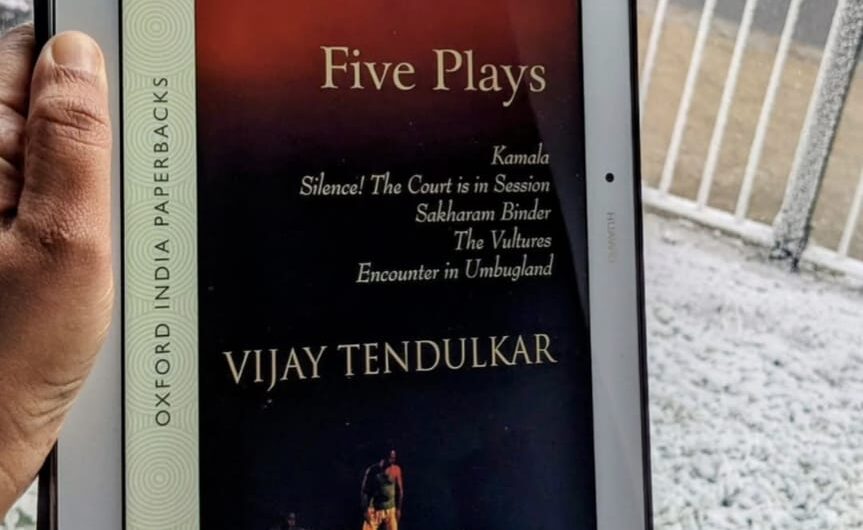I got back to reading plays a couple of years ago with Girish Karnad’s “Crossing to Talikota”. I enjoyed it so much that I decided to read more of Karnad’s plays and explore other Indian playwrights, as well.
My first pick was “Kamala” by Vijay Tendulkar (the English translation). The play follows Sarita’s life, which is fairly uneventful and routine until her journalist husband Jaisingh Jadhav does something unexpected. Jaisingh buys a woman named Kamala at a flesh market and brings her home as part of his plan to expose the flesh trade. Although his intention is good, there are other aspects this action brings to light.
Tendulkar bases his play on the real-life journalist Ashwini Sarin of The Indian Express who actually pulled off this daring act in 1981. Although, Jaisingh, and Ashwini, are lauded for the ‘scoop’ they got, it raised other questions. Jaisingh uses this as a stepping stone to further his career. He brings Kamala to a press conference in a grand gesture to announce his achievement. But for Kamala herself there isn’t much to be gained.
Tendulkar infuses more layers of perspective and thought with the focus on Sarita and Jaisingh’s marriage. Jaisingh orders Sarita about, expects her to cater to his demands, and doesn’t give much thought to her individuality. Ironically, she too is like a slave and as the play progresses she realises that there’s no difference between her and Kamala. When Kamala comes home, she thinks that Sarita was also bought just like her.
Tendulkar is like Jaisingh who does an exposé. He peels back Jaisingh’s veneer of self-righteousness to show his deep chauvinism, and selfish interests behind his actions. Kamala is not even allowed to bathe or change her clothes because Jaisingh wants to present her as his untarnished trophy. “Just let this evening’s Press Conference get over. It’s very important,” he says.
His claim of revealing the truth remains an ideal and gets lost in his real goals of becoming an acclaimed reporter, earning a higher salary, etc. Jaisingh embodies the male-dominated society, which objectifies women. Sarita’s character arc reminded me of Nora in Ibsen’s ‘A Doll’s House’, which ends with Nora banging the door shut indicating the end of her old way of life as a submissive wife, and the beginning of a new one thanks to her self-realisation.
For a concise, two-act play, “Kamala” has a lot to say. Very highly recommended.



